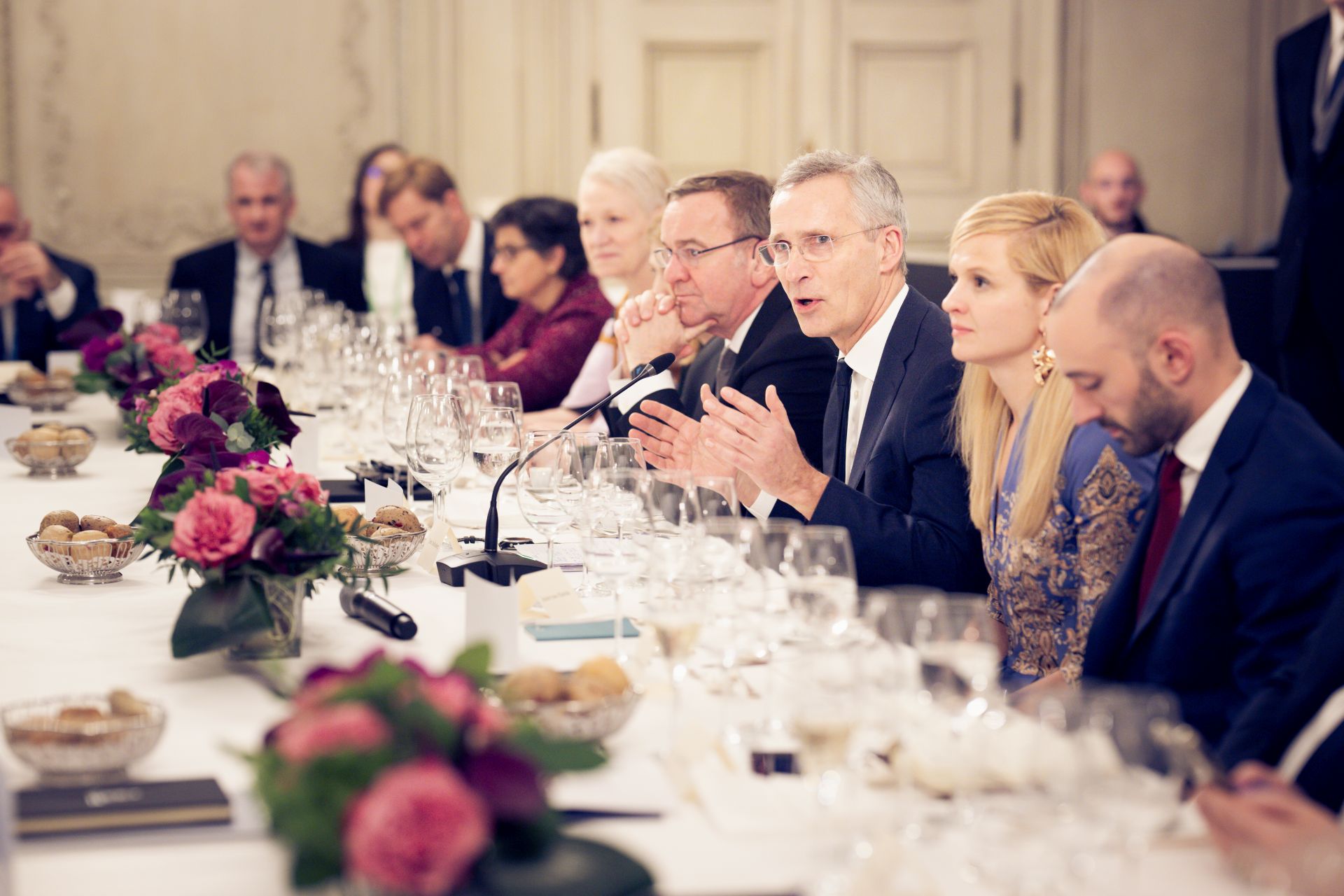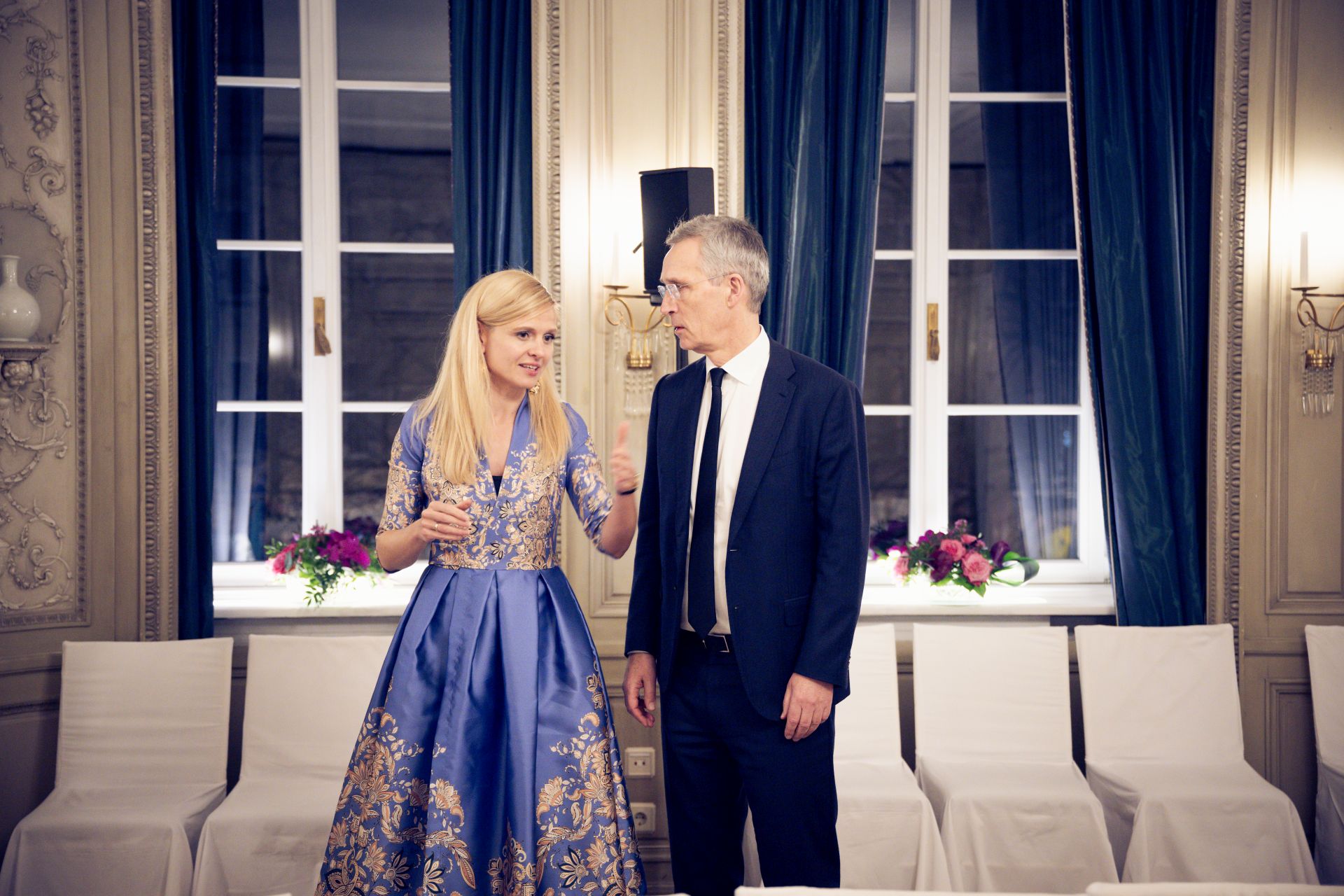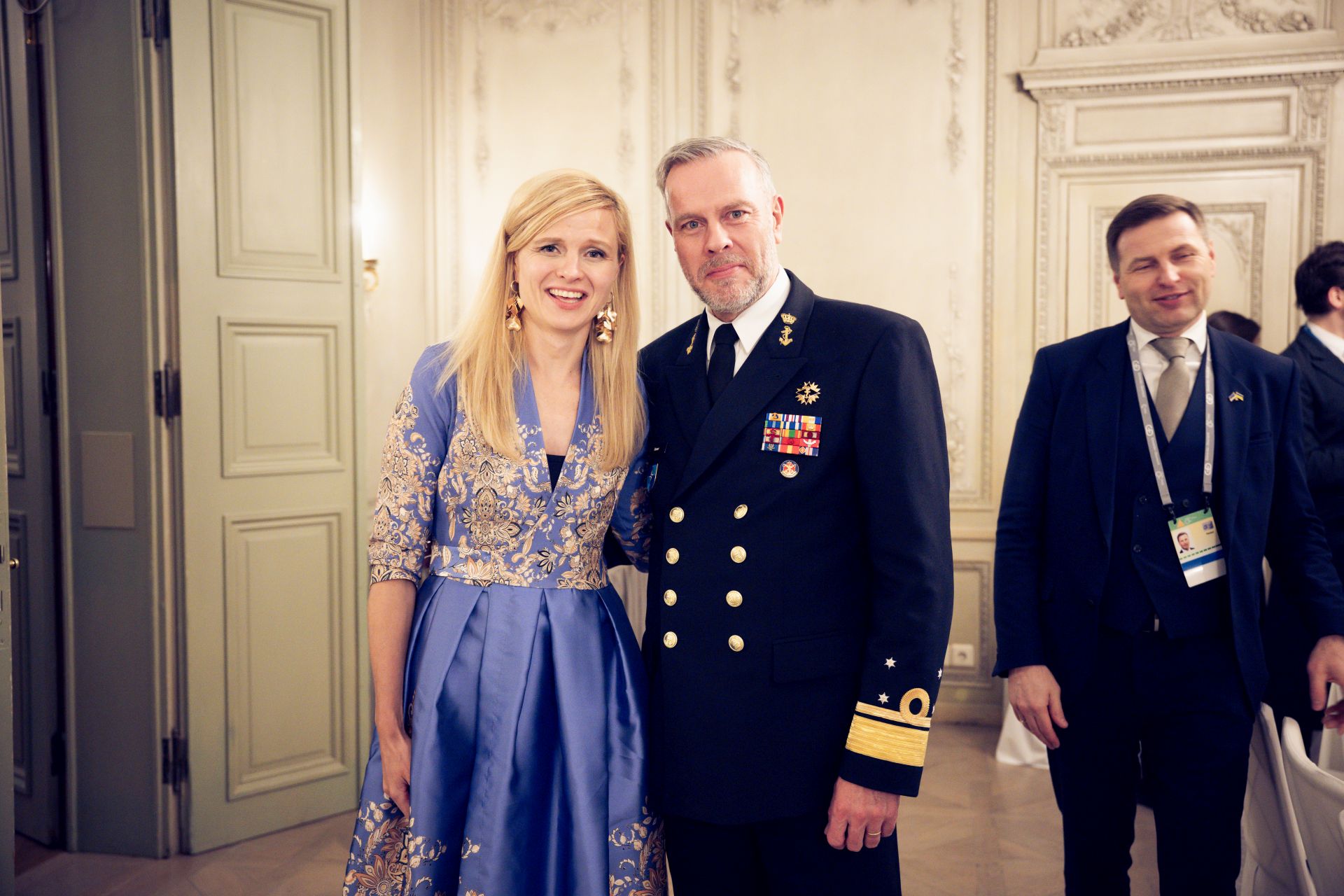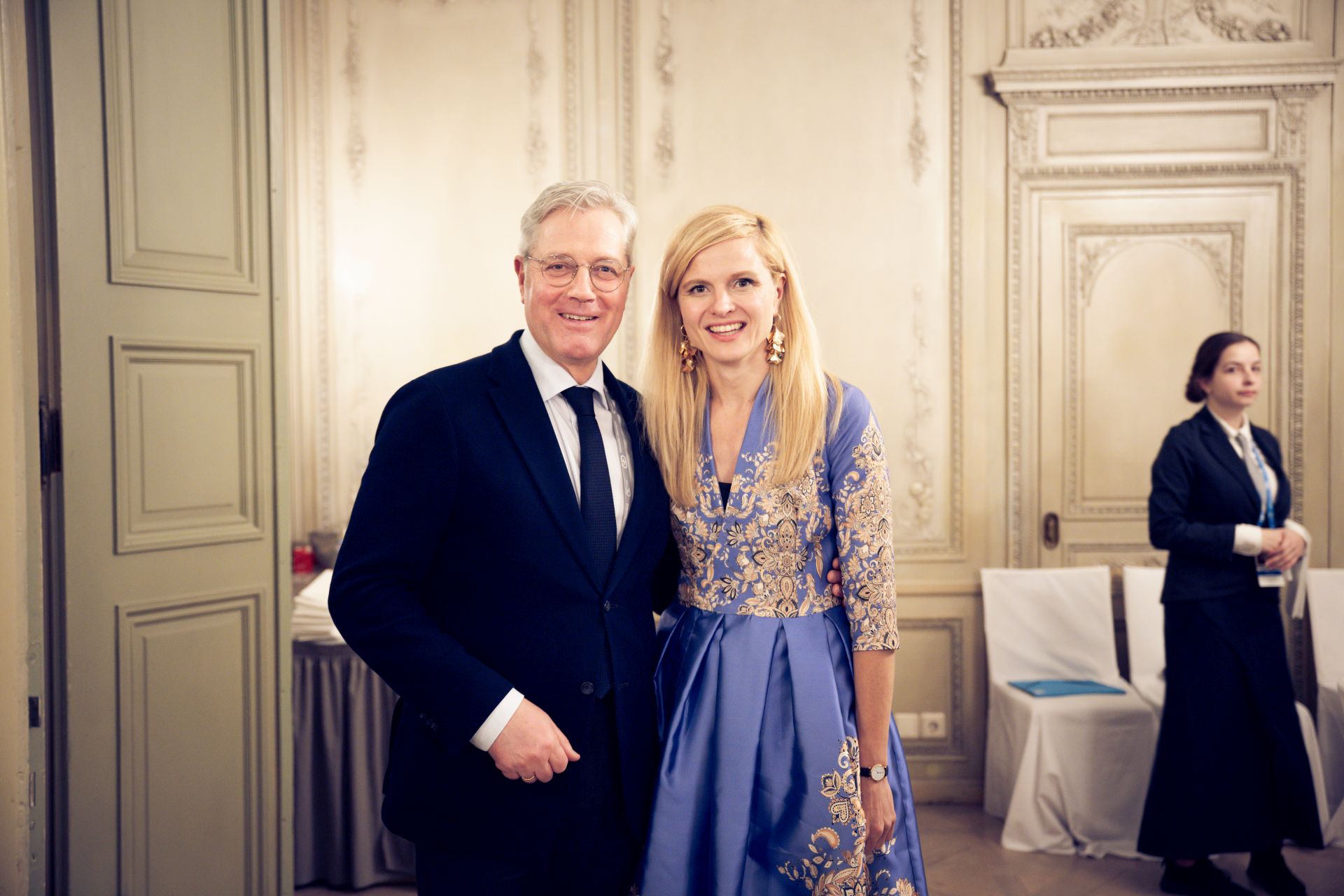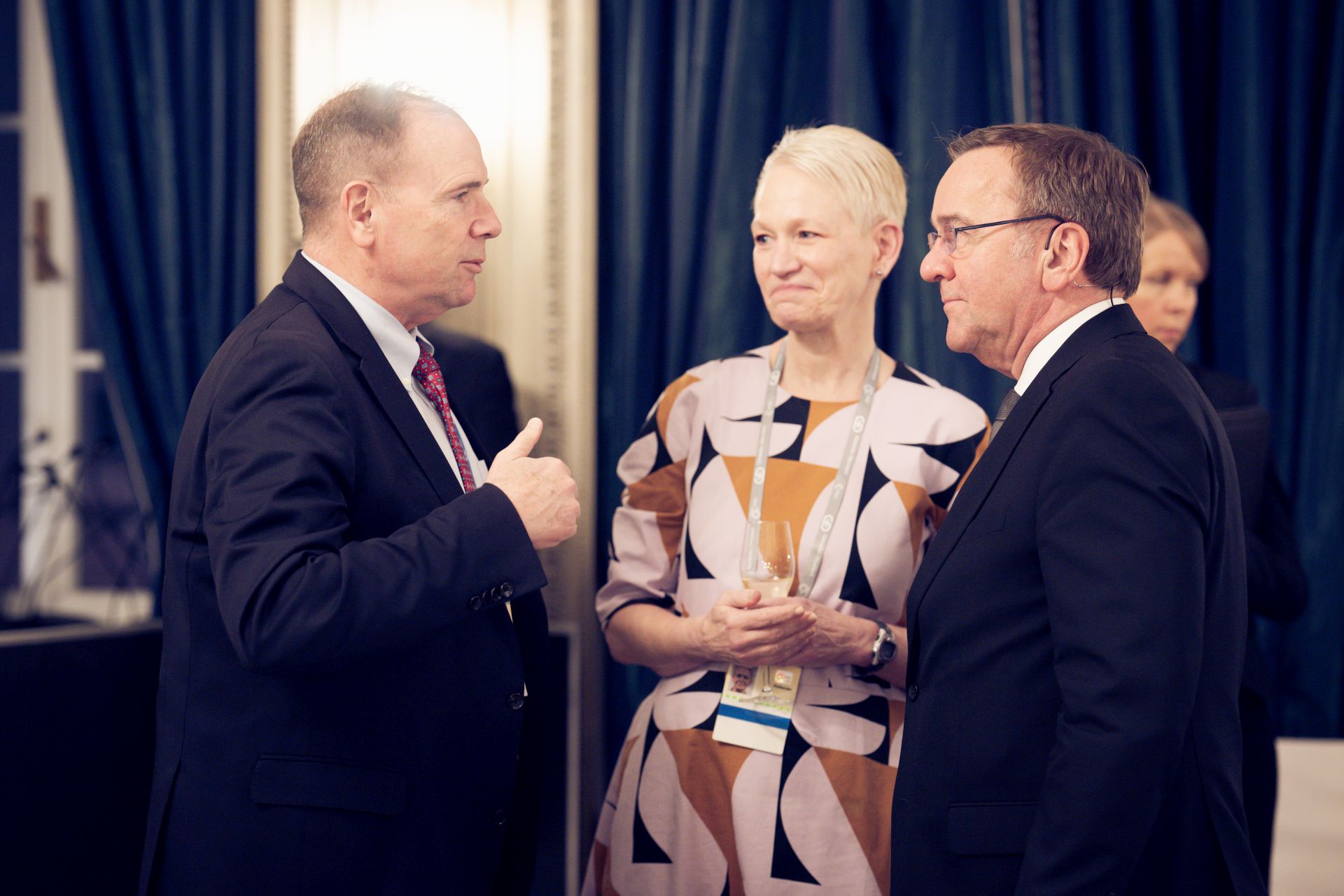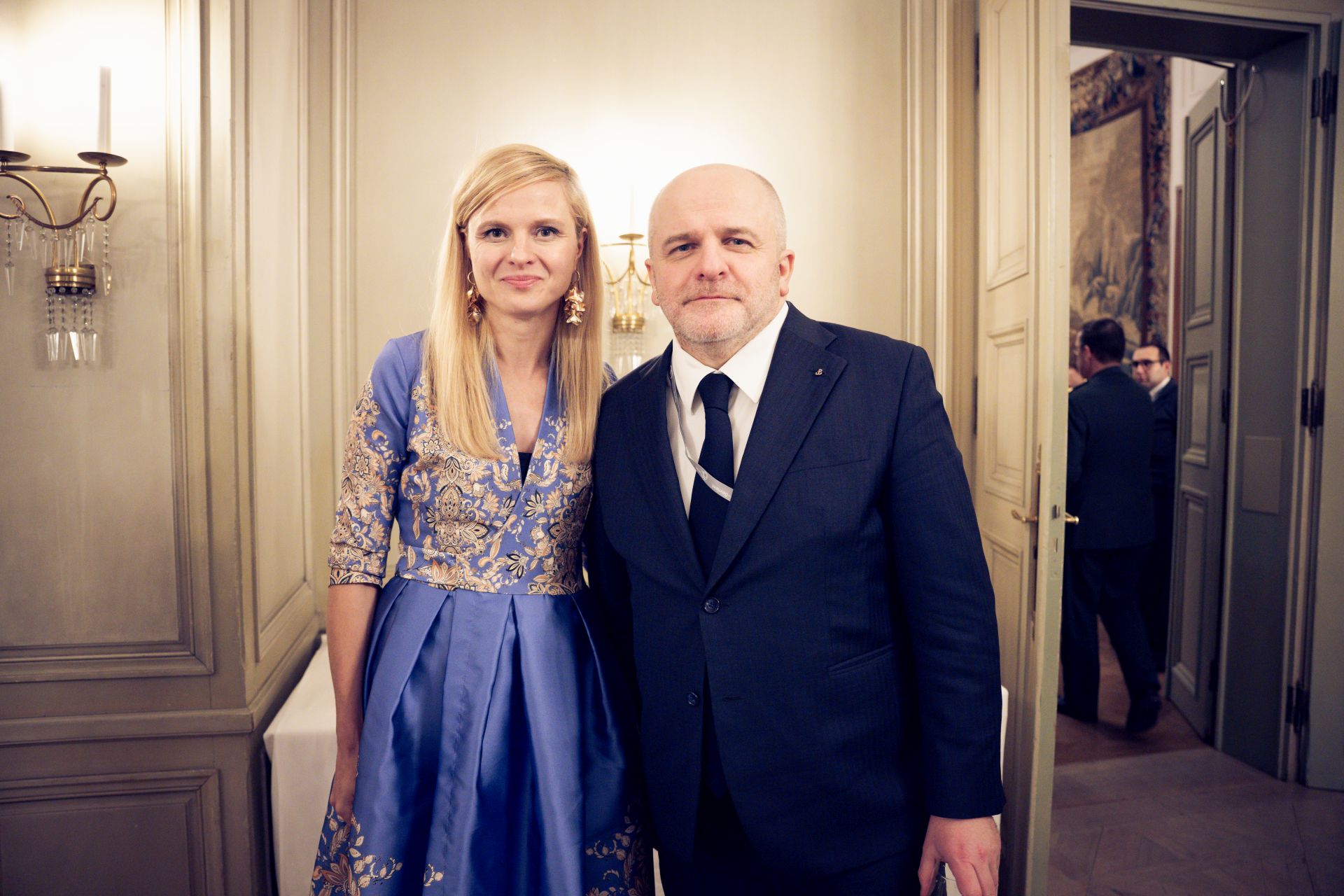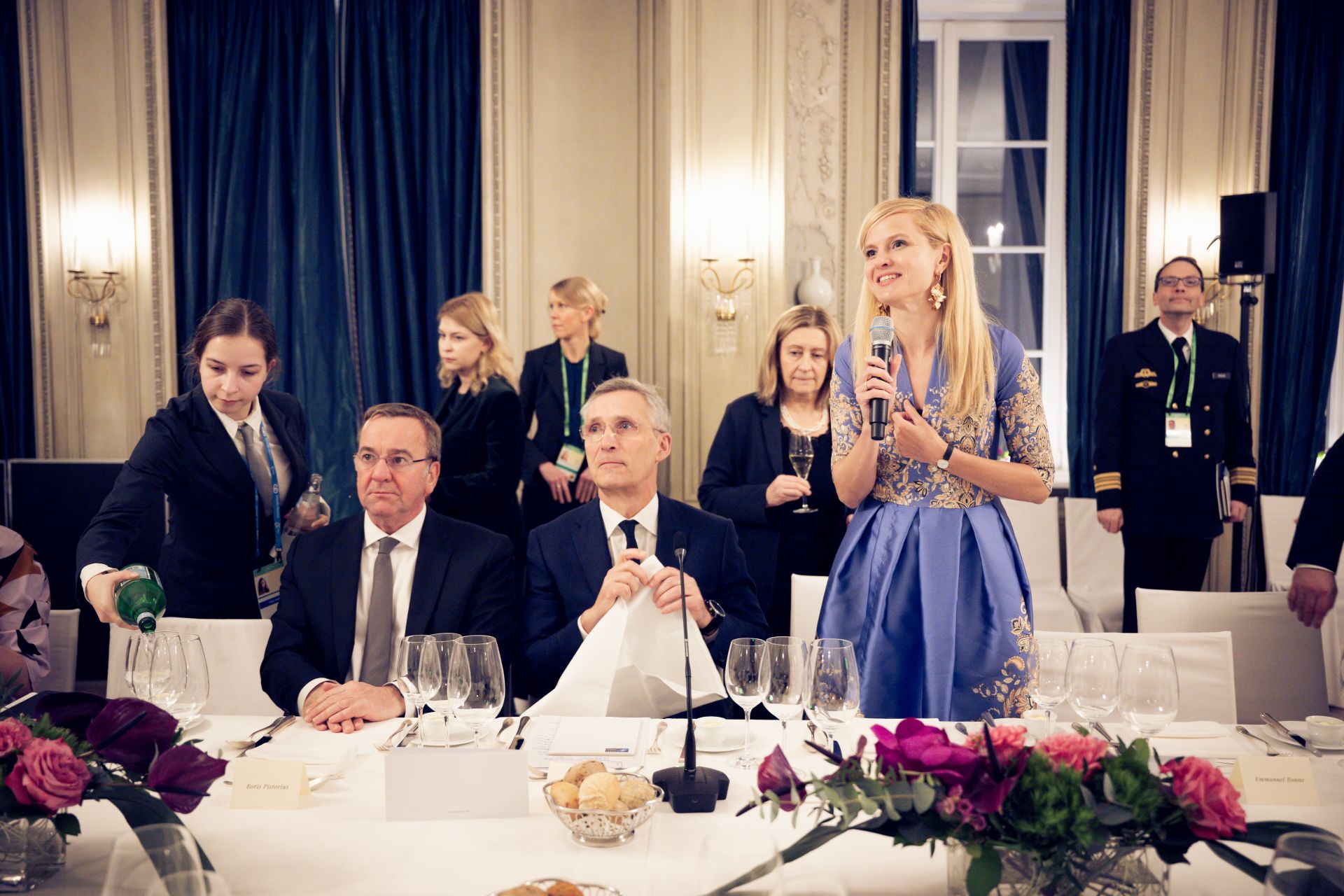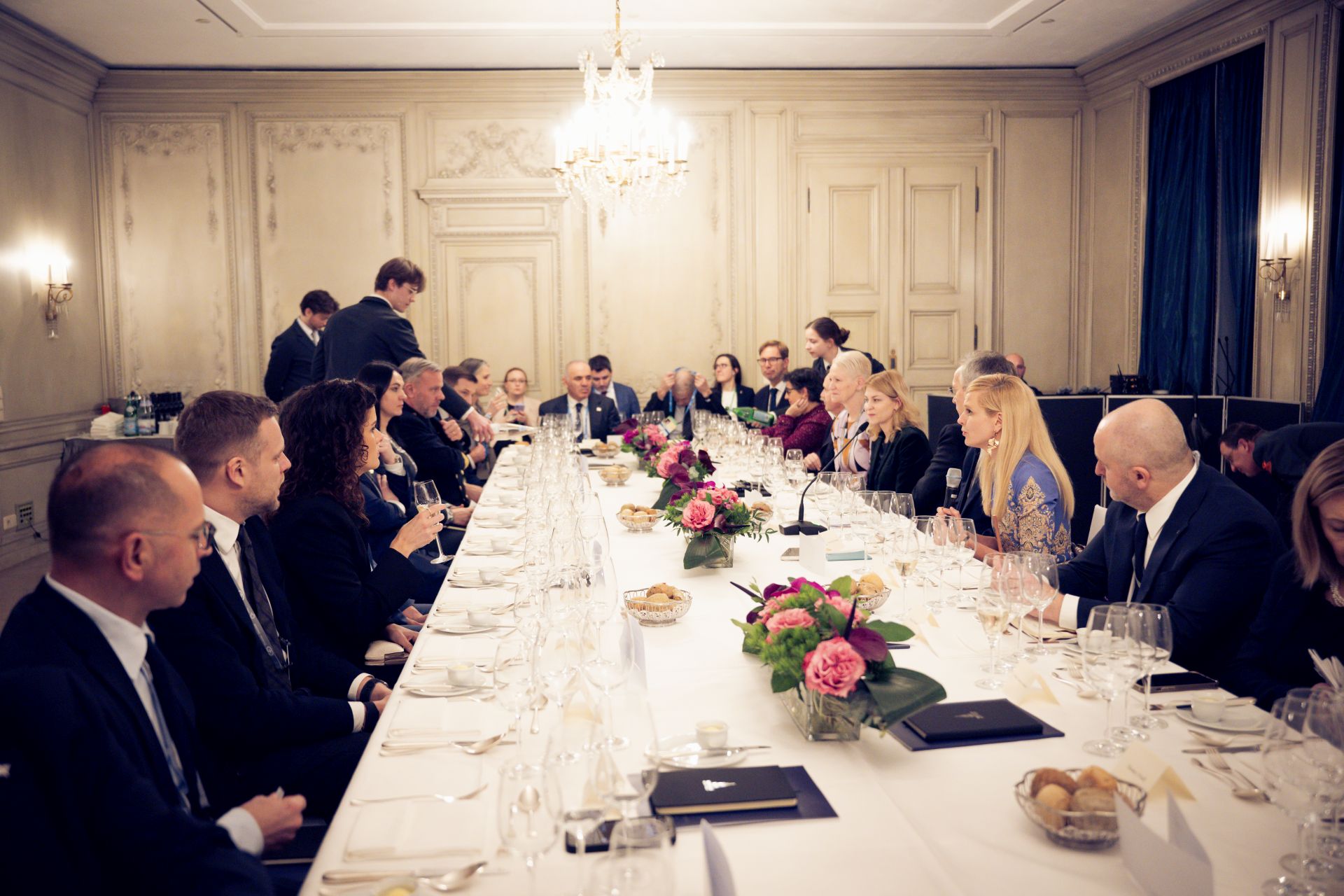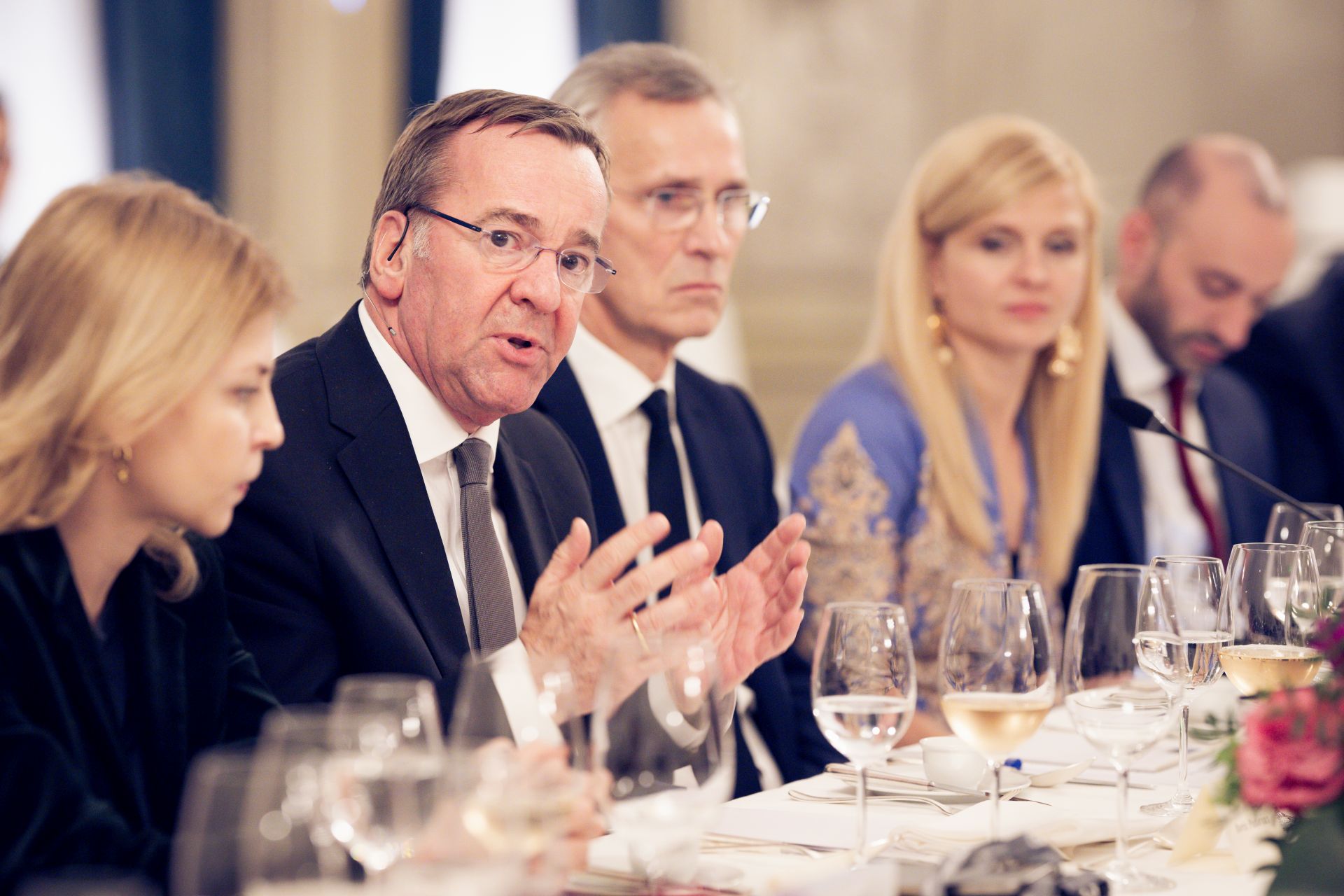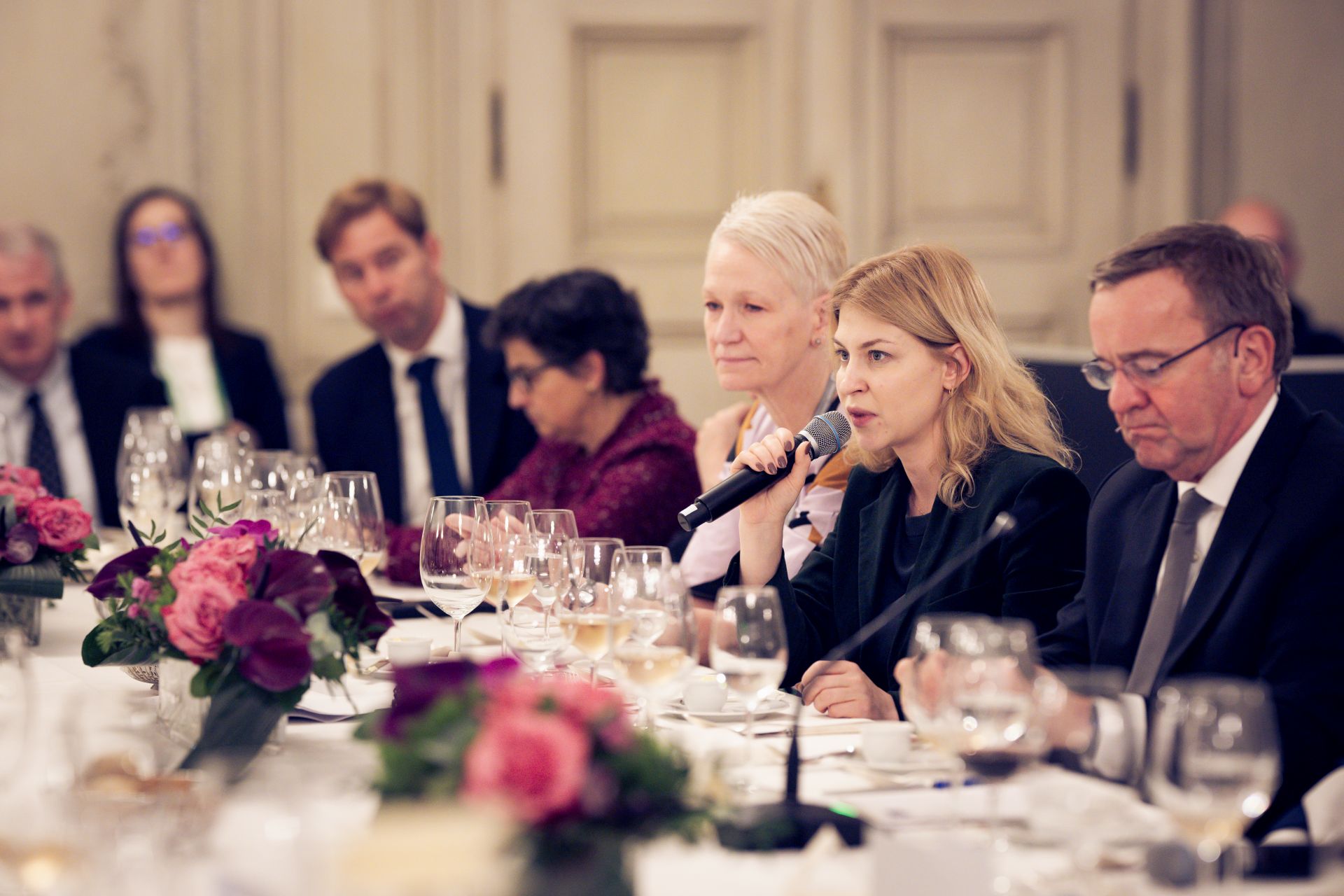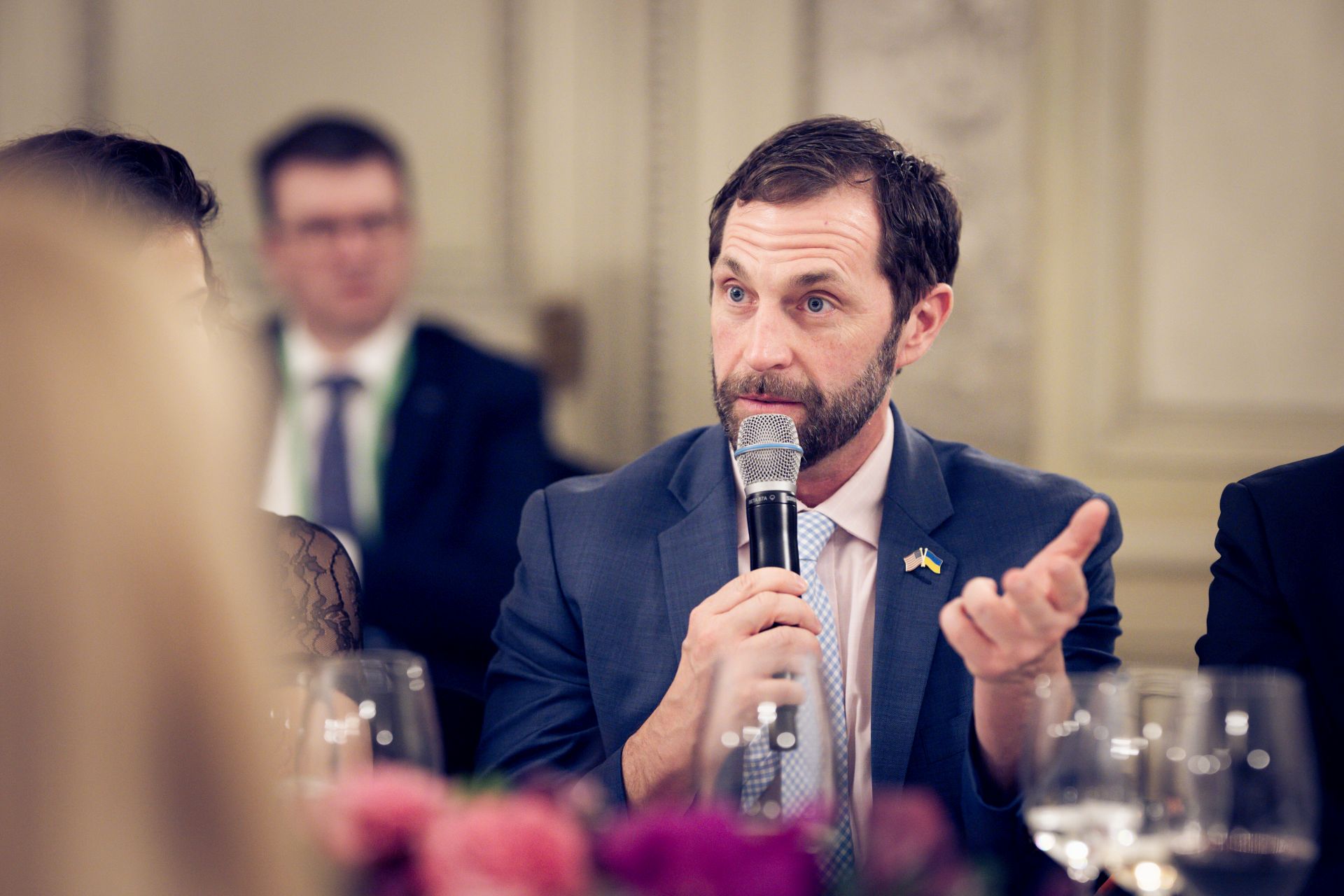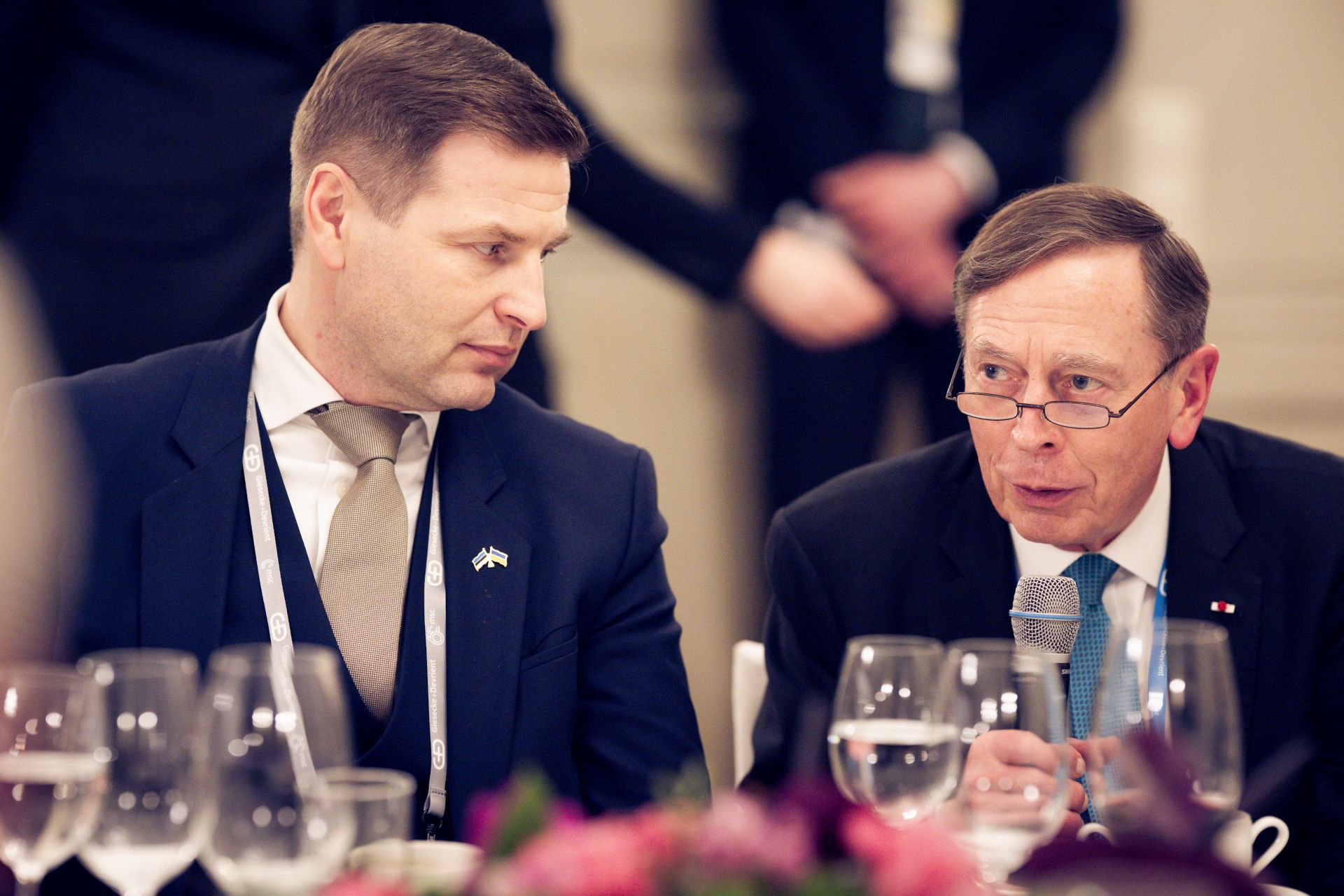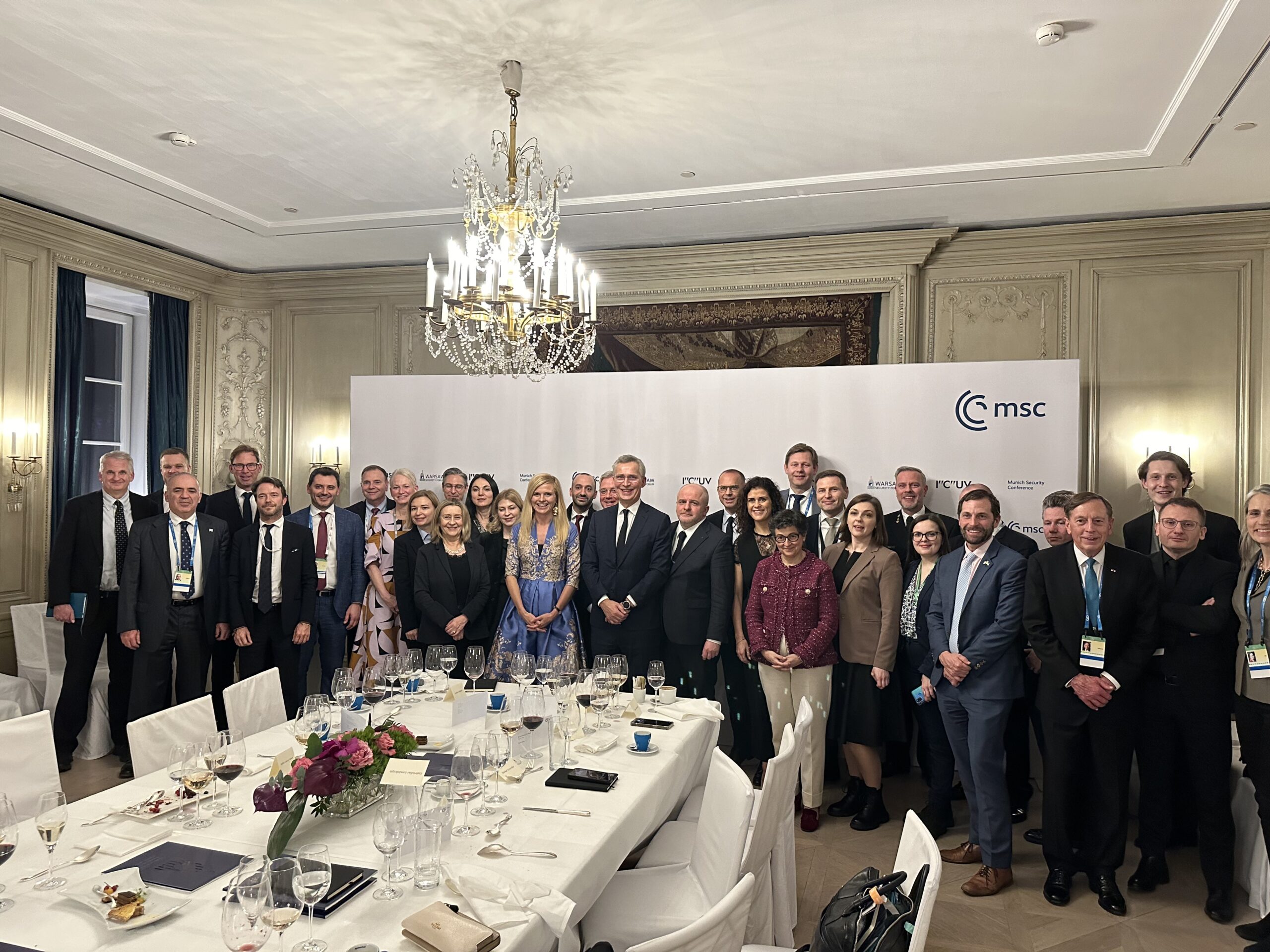WSF High-Level Dinner at MSC2024
WSF High-Level Dinner at MSC2024
As part of WSF activities at the #MSC2024, we had a great opportunity and pleasure to organise a closed-door event “Different Shades of Victory: Rethinking the End of the War in Ukraine. Scenarios & Their Impact on Transatlantic Security” together with our Ukrainian friends and partners from the ICUV.
The event hosted an exclusive cohort of distinguished guests, including the Guests of Honour:
- Jens Stoltenberg, Secretary General, NATO
- Boris Pistorius, Minister of Defence, Germany
The dinner was also attended by:
- Olha Stefanishyna, Deputy Prime Minister for European and Euro-Atlantic Integration of Ukraine;
- Pål Jonson, Minister for Defence, Sweden;
- Gabrielius Landsbergis, Minister of Foreign Affairs, Lithuania;
- Hanno Pevkur, Minister of Defence, Estonia;
- Thórdís Kolbrún Reykfjörd Gylfadóttir, Minister for Finance and Economic Affairs, Iceland;
- Jacek Siewiera, Secretary of State, Head of the National Security Bureau of the Republic of Poland,
as well as a US Congress representative, lawmakers from Poland, France, Germany, and the United Kingdom, senior officials from the military and renowned experts from academia and the think tank community.
It is worth mentioning the presence and active engagement at the dinner of Dr. Norbert Röttgen, Gen (R) David Petraeus and Lt. Gen. (R) Ben Hodges, who are members of the WSF International Advisory Council.
The frank Chatham-house rules-based discussion revolved around the following topics of key importance to Transatlantic security:
- Ramping up European defence capabilities in the face of the mounting global and regional threats;
- Emerging leadership and role of Central and Eastern Europe in the changing European security architecture;
- Ensuring European military and financial support to Ukraine in the face of Donald Trump’s reelection in 2024 and U-turn in the US foreign policy;
- Upcoming 2024 NATO anniversary summit in Washington: what is next for the Allies and Ukraine’s bid to get the membership;
- Confiscation of Russian frozen assets and their transfer to Ukraine;
The participants of the closed-door event came to the following conclusions:
- Solidarity among the NATO states plays a fundamental role in our resilience. Despite the possessed technological superiority, our political statements undermine our capabilities. While we should strengthen the European pillar of NATO, the role of the non-NATO partners is indispensable for our security.
- The lack of a common vision on the issue of Russian frozen assets is still prevailing. Arguments of economic nature are raised it is feared that this might have a negative impact on the European economy.
- It is the right moment to start taking Putin’s intentions seriously as the threat that his regime poses to the West is real.
- Ukraine needs to be guaranteed a long-term financial and military support to be able to repel the Russian aggression;
- We are witnessing epochal changes, which require us to think and act in new ways. It is crucial to convey a clear message to the Western countries’ electorate that the Russian threat is imminent and we cannot afford to downplay it.
Energy Security as the Foundation for a Just Transition in Post-Industrial Regions
The transformation of post-industrial regions toward sustainable, low-emission economies hinges on one critical factor: energy security. This theme, explored during a high-level panel discussion at the last edition of the Warsaw Security Forum, highlighted the need to transition from coal and other high-emission energy sources to cleaner alternatives such as renewable and nuclear energy. Achieving this shift will require not only technological innovation but also strategic planning, international cooperation, and robust regulatory frameworks.
Polish presidency in the EU: a chance for a sustainable energy transition
The evolving landscape of decarbonization and energy security, with its profound regional and global implications, business operations in Poland. ORLEN is eager to engage in discussions about energy transition and the EU regulations required to facilitate it. The company has prepared a position paper highlighting the key challenges: preserving the competitiveness of the EU market, championing technological neutrality, ensuring access to decarbonization financing, and shifting away from overly prescriptive regulatory approaches.
WSF2024: Summary
The 11th edition of the Warsaw Security Forum (WSF), held on October 1-2, 2024, successfully brought together 2,600 participants from 90 countries, 30 governmental delegations, and over 250 speakers to address critical issues surrounding European and transatlantic security. With 1 million combined online views and over 14,000 live viewers, the WSF reaffirmed its importance as a leading platform for security dialogue in Europe.
